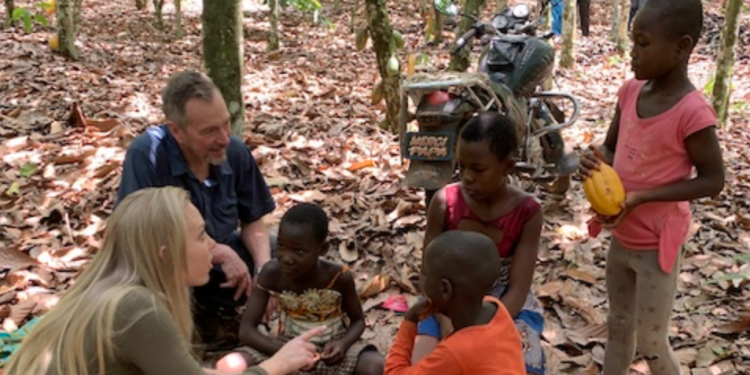European Union subsidies to the end child labour in Ivory Coast would be a waste of taxpayer funds, spent corruptly in the main, according to experts. The infrastructure to end forced child labour needed to be addressed first.
They were responding to news reports that the EU is looking to provide around one billion euros over six years to aid Ivory Coast’s cocoa sector.
“In the context of our future programming for 2021 to 2027, the EU is envisaging a Team Europe initiative which could mobilise up to one billion euros to accompany Ivory Coast in the transition towards sustainable cocoa production,” EU Ambassador to Ivory Coast Jobst von Kirchmann said in an interview with Reuters.
Kirchmann did not say when a final decision would be taken.
Quota hosted an online event this week on the subject, at which BBC Foreign Correspondent Humphrey Hawksley said, “Of that billion, 90 per cent would go into the pockets of corrupt politicians. The only people that bring those corrupt politicians into line are the chocolate companies, because the government exists on them being there.”
Human rights lawyer Terrence Collingsworth, who also spoke at the event, is engaged in two class actions against the world’s chocolate giants, on behalf of child slaves in Ivory Coast.
Following the event, he said, “I would find it outrageous for US or EU taxpayers to subsidise companies that have deceptively and wilfully profited from child slavery for decades.
“It would be the height of folly, good money after bad, to give these companies another penny”
“Any subsidies could be directed as a foreign aid tool to address monitoring only.
“These companies have shown themselves to be unwilling to stop profiting from child slavery until they are forced to do so. It would be the height of folly, good money after bad, to give these companies another penny until there is a plan in place for major structural changes in the industry.
“When Big Chocolate, including all the companies we sued in our new case brought on February 12, 2021, Nestlé, Cargill, Mars, Hershey, Barry Callebaut, Mondelez, and Olam, signed or agreed to the Harkin-Engel Protocol in 2001, they were immediately subsidised with millions of dollars from US taxpayers.
“The Department of Labor directly supported the initiative. And funds have been provided across the years to the International Labor Organization for support of the programme.
“This has been going on for 20 years now and, according to the October 20, 2020 NORC Report, also funded by the US Department of Labor, reliance on cheap cocoa harvested by the worst forms of child labour has gotten worse.”
Terrence Collingsworth detailed the structural change required before any funding could be put to work effectively, saying it had to start with a price increase to farmers, of three to five times what they are currently paid, to deliver a “true living wage”.
There is no monitoring of child labour at all in Ivory Coast cocoa
He said, “This will not put any one company at a competitive disadvantage if they all meet this price.
“As part of this increase, the community of farmers and workers must be educated about a new system that prohibits child labour, in exchange for pay that is sufficient to allow a decent life for a farmer and his or her family.”
Also needed is a clear framework for an independent monitoring and certification system that ensures participating companies are 100 per cent transparent, disclosing their entire cocoa supply chain.
Currently only 30 per cent of cocoa beans are being monitored for their environmental impact and no certification schemes are monitoring child labour.
“A programme like Goodweave is the best option I have seen,” Terrence Collingsworth said.
“A plan to clean up corruption in the cocoa sector as well improve the foundation for cocoa production in Ivory Coast and Ghana would add higher value work to these economies.
“We have some great people in the NGO community willing to jump in to help restructure and rebuild the cocoa sector. We just need the companies to stop wasting millions on lawyers, PR firms and lobbyists and come to the table to work with us to start actually addressing solutions to decades of their profiting from child slavery.”























